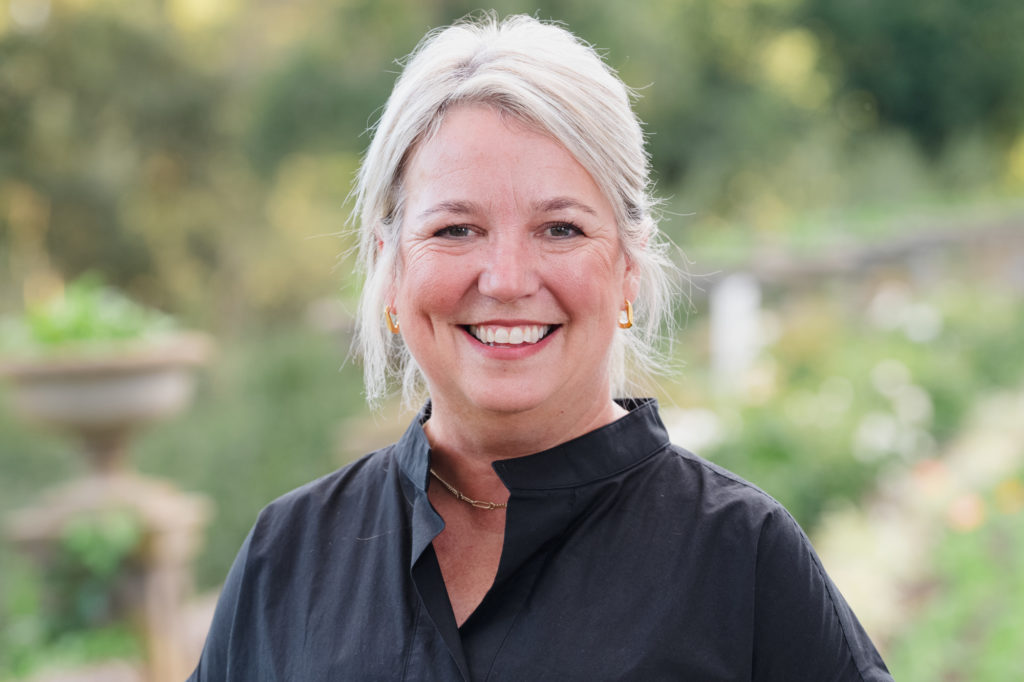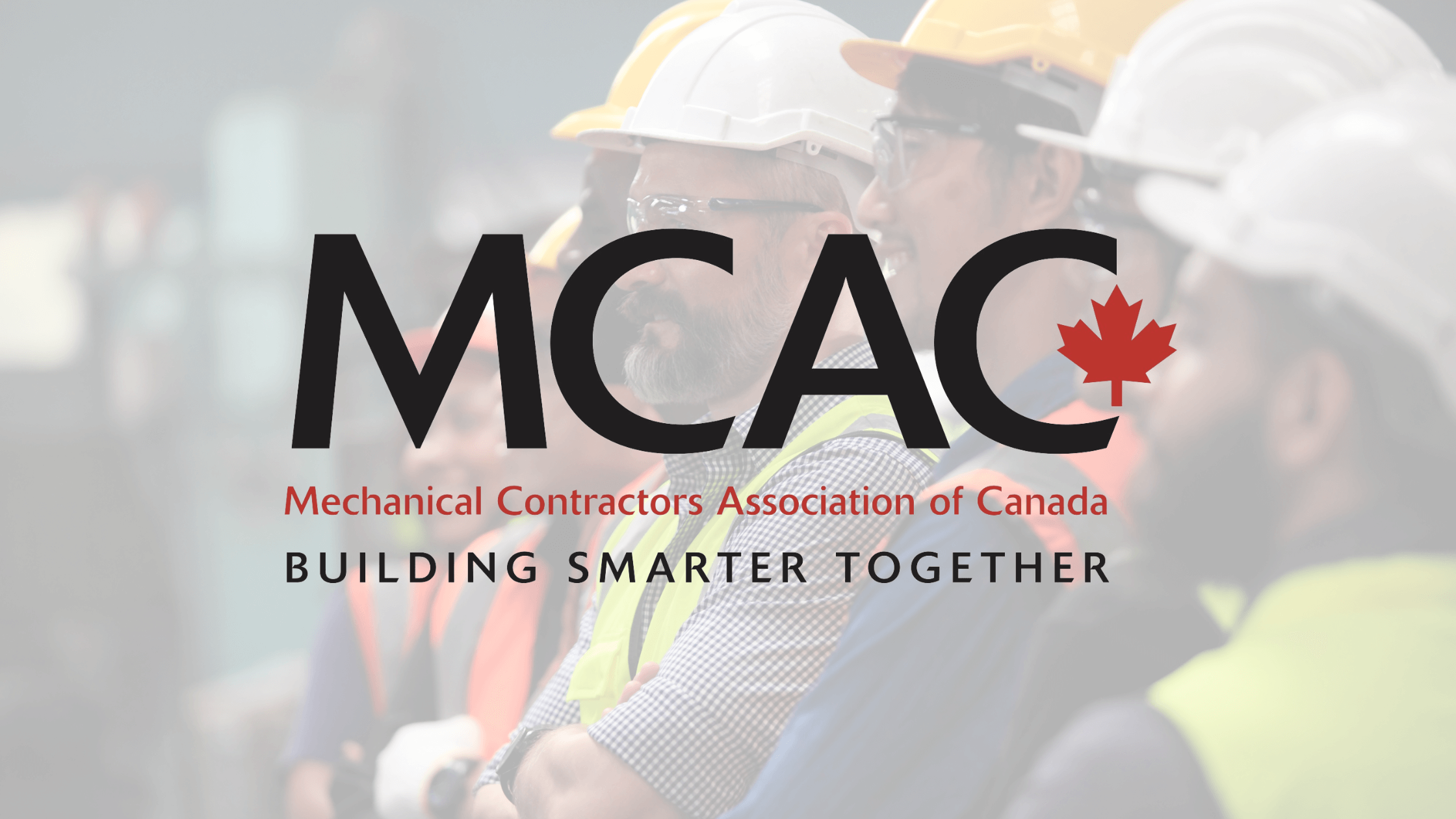We met with Tania Johnston, CEO of the Mechanical Contractors Association of Canada, to discuss her journey through the construction industry. She discussed her inspiring career, the importance of mentorship, advocating for workforce development, and championing mental health and innovation in mechanical contracting.
UTHH: Can you tell our readers about the Mechanical Contractors Association of Canada (MCAC), what it is, and what your initiatives are?

Tania Johnston: The association represents about 800 contracting firms from across Canada. We have 800 contracting members and 100 associate members. The associate members are the manufacturers and suppliers providing the products and services our contractors need to construct. We represent more than 10 red seal trades, from plumbing to heating—we describe it as anything to do with water and air.
MCAC also provides advocacy work at the federal government level, so if there are any issues affecting contractors, we regularly lobby and meet with the federal government on different industry issues. We offer education to our members for that middle management group.
UTHH: What about training opportunities?
TJ: We support them with training for office-level opportunities and any leadership and project management training they might need, from boots on the ground to behind a desk.
UTHH: Can you discuss your career journey and key moments that defined your path?
TJ: My path had nothing to do with construction at all. I was fortunate to have this industry fall into my lap. I started as a school teacher. I taught for a few years in New Brunswick, moved to Ottawa, and couldn’t get full-time teaching work, so I started teaching computer skills to adults when this opportunity came up. MCAC had a government grant, and they were looking for somebody to oversee their education after the previous person left. I thought I would try it, then go back to supply teaching. It’s been 25 years, and I’m still here.
I’ve grown up with the association; I’ve had my kids since I’ve been here. My journey started with education, and then gradually, I took on different portfolios. We have a student chapter, the University Student Chapter Group, which I’m super passionate about. We started our women in mechanical construction. All of these different paths really set me up for success.
My previous CEO left, and I applied and was given the role. During his tenure, he really gave me opportunities to showcase myself and what I could do. For that, I’m very grateful. Mentorship is so important in this industry; it really is about people giving you opportunities in your career.
UTHH: I would think that your background in education positions you really well in your current role to be successful; working with different kinds of people, active listening skills, communication. Have you experienced many challenges as a female CEO in a male-dominated field?
TJ: I get asked that question a lot. The current narrative is that we do face a lot of uphill challenges. And I agree. There is a lot. Women in the tools face so many challenges. But, I have been fortunate in my career that the contractors have accepted and supported me. A lot of those contractors have been mentors to me along the way. When I was applying for this job, they gave me lots of great advice, and I’ve had a lot of support.
UTHH: I think that’s very honest. Sometimes, there are unique challenges, and sometimes there are none.
TJ: Absolutely. I’ve had a lot of mentorship opportunities through these contractors. If I have questions, they’re there to take my phone calls. People don’t not take my phone calls because I’m female. If I could do it again, I would have started in the industry. It wouldn’t have led me to association work, but I would have gone into construction, project management, and estimating. The careers are amazing.
UTHH: The gender question also doesn’t account for how the lens is changing; it’s not necessarily about inherent discrimination. We also need to address encouraging girls at an earlier age to explore the trades, women not being mentored, and women not seeing themselves represented in the industry. It’s all of that and much more.
TJ: 100%. That’s why we have just written our first children’s book, Susie’s Shed. We’re launching it at our conference (November 28), and it’s about a little girl who has a backyard shed. She wants to fix it and make it into a little playhouse for her and her friends. It’s about picking up a wrench and a hammer and how working with tools becomes part of the play. The book is for the four to seven age bracket. We’re excited about it.
UTHH: What were some of the most significant learning opportunities you’ve encountered throughout your career?
TJ: Being tenacious and not giving up on things, especially in the association world. Processes take a long time, government initiatives take a long time, policies take a while to create, and having people see your perspective takes a long time. Mentorship is also a big piece. I always want to be a mentor, it’s imperative to me. We’ve got a younger staff who wants as much knowledge as we can give them, and we want to let them go out to those construction conferences and learn and see and have those opportunities in their careers. Finally, being open to new ideas is so vital. Technology is quickly changing the construction world, and being open to new ideas is critical. It’s our responsibility to share that information with our contractors, encourage them, and provide them with education opportunities to make them better contractors.
UTHH: It also creates a less siloed industry, right? Everyone knows what everyone knows and can work towards the same goal.
TJ: Absolutely. They might be competitors, but they’re usually willing to open their doors and show what they’re doing, innovation-wise. We’ve got a contractor at BC. He invites all of the Vancouver Mechanical Contractors Association members to his company and lets them see what he’s doing on the technology front.
When I can do site visits, I love seeing what they do. It’s also so important to get out from behind my desk. We can talk about apprentices and women in the trades, but unless I’m out there and seeing them work and what they’re facing daily, can I really speak on their behalf?
UTHH: What are some of the bigger challenges facing the industry?
TJ: We need to change the narrative of how we promote the industry. For example, mechanical is a skilled trade. People perceive that skilled tradespeople have somehow failed academically, but that’s wrong. Mechanical is very math-oriented, and we need to promote it better. Mechanical contractors or people working in the trades should be viewed as professionals because what they do is highly skilled and takes a lot of knowledge and continuous learning.
Another issue is staying on top of technology and how we can encourage members to be more efficient in their jobs with the workforce shortage.
UTHH: For example?
TJ: A lot of modular building is going on right now. A lot of them are creating these prefab facilities. It’s safer to do that work inside; it’s warmer, and the conditions are better. You’ve got your proper washrooms, lunchrooms, all of those things. The challenge is convincing contractors that prefab doesn’t mean they’re being replaced. It doesn’t speak to their crew’s skill sets or ability to build something. It just means they can do it faster, more efficiently, and safer.
Another huge concern is mental health in construction and addressing that. Construction has the highest suicide rate of any profession, so we’re doing a lot of training about what to look for on a job site and what you should be asking your apprentices on a day-to-day basis. It’s in the offices, too; we’re seeing this struggle at all levels, so we’re putting significant effort into promoting that 9-8-8 helpline in Canada. We have sessions at our conferences on mental health and bring in experts.
UTHH: What is MCAC’s vision for the future?
TJ: We have a committee for women in mechanical construction. It’s pretty new, about four years old, and they’re making great strides. We support other women in construction groups. It feels typical of women to come together, lean in, and support this grassroots initiative that’s very non-competitive. We all want to share what each other is doing and help each other.
Another area of focus is putting more work and thought into supporting our future leadership in construction. The needs of our next generation of leadership are very different from what they were 20 years ago. What better way to tap into those needs than by creating a Future Leader Advisory Council directly reporting to the Board of Directors? This council has already created an Emerging Leaders Conference aimed at tackling some of the needs and challenges they face.
Like this and want more? Follow us on social media and subscribe to our weekly newsletter for the latest news in AEC associations delivered directly to your inbox.


